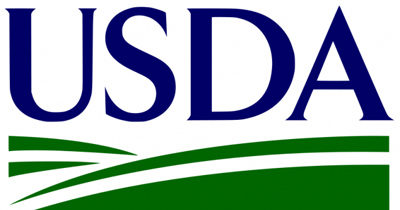Nov 21, 2019Salad products recalled due to possible E. coli O157:H7 contamination
Missa Bay, LLC, a Swedesboro, New Jersey, establishment, is recalling approximately 75,233 pounds of salad products that contain meat or poultry because the lettuce ingredient may be contaminated with E. coli O157:H7, the U.S. Department of Agriculture’s Food Safety and Inspection Service (FSIS) announced Nov. 21.
The salad products items were produced from Oct. 14, 2019 through Oct. 16, 2019. The products subject to the recall can be found on the following spreadsheet. [View Labels (PDF only)]
The products subject to recall bear establishment number “EST. 18502B” inside the USDA mark of inspection. These items were shipped to distribution locations in Alabama, Connecticut, Florida, Georgia, Illinois, Indiana, Louisiana, Maine, Maryland, Massachusetts, Michigan, Minnesota, Mississippi, Missouri, New Jersey, New York, North Carolina, Ohio, Pennsylvania, South Carolina, Virginia and Wisconsin.
As part of a foodborne illness outbreak investigation, the Maryland Department of Health collected an unopened package of Ready Pac Bistro Chicken Raised Without Antibiotics Caesar Salad with FSIS EST number 18502B on the label. The state collected and tested individual ingredients in the salad and the lettuce tested positive forE. coli O157:H7. All products from the same lot of lettuce are included in the recall.
Most people infected with STEC O157:H7 develop diarrhea (often bloody) and vomiting. Some illnesses last longer and can be more severe. Infection is usually diagnosed by testing of a stool sample. Vigorous rehydration and other supportive care is the usual treatment; antibiotic treatment is generally not recommended. Most people recover within a week, but, rarely, some develop a more severe infection. Hemolytic uremic syndrome (HUS), a type of kidney failure, is uncommon with STEC O157:H7 infection. HUS can occur in people of any age but is most common in children under 5 years old, older adults and persons with weakened immune systems. It is marked by easy bruising, pallor and decreased urine output. Persons who experience these symptoms should seek emergency medical care immediately.
FSIS is concerned that some products may be in consumers’ refrigerators even though they are past their use by dates. Consumers who have purchased these products are urged not to consume them. These products should be thrown away or returned to the place of purchase.
FSIS routinely conducts recall effectiveness checks to verify recalling firms notify their customers of the recall and that steps are taken to make certain that the product is no longer available to consumers. When available, the retail distribution list(s) will be posted on the FSIS website at www.fsis.usda.gov/recalls.
Consumers with questions regarding the recall can contact Mary Toscano, Consumer Affairs Manager for Bonduelle at 1-800-800-7822. Members of the media with questions regarding the recall can contact the Bonduelle Newsroom at (626) 678-2222 or [email protected].
Consumers with food safety questions can call the toll-free USDA Meat and Poultry Hotline at 1-888-MPHotline (1-888-674-6854) or live chat via Ask USDA from 10 a.m. to 6 p.m. (Eastern Time) Monday through Friday. Consumers can also browse food safety messages at Ask USDA or send a question via email to [email protected]. For consumers that need to report a problem with a meat, poultry, or egg product, the online Electronic Consumer Complaint Monitoring System can be accessed 24 hours a day at https://foodcomplaint.fsis.usda.gov/eCCF/.
| USDA Recall Classifications | ||
| Class I | This is a health hazard situation where there is a reasonable probability that the use of the product will cause serious, adverse health consequences or death. | |
| Class II | This is a health hazard situation where there is a remote probability of adverse health consequences from the use of the product. | |
| Class III | This is a situation where the use of the product will not cause adverse health consequences. | |

















